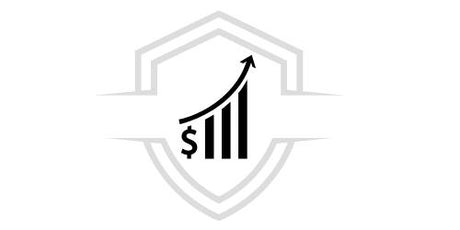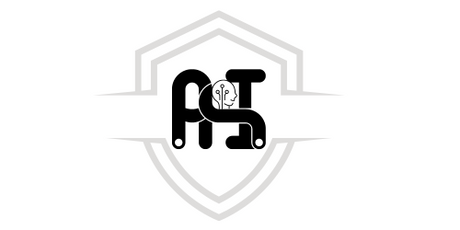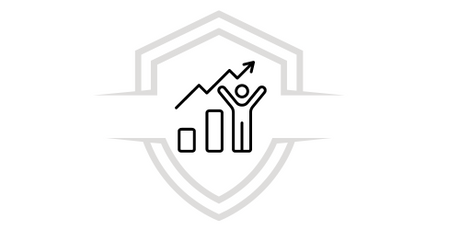We believe that it is a complete mistake to think that there is a kind of Google Ads vs Facebook Ads . This perception is born as a consequence of the natural rivalry between technology companies such as Google and Facebook .
It was therefore believed that advertisers had to make a difficult decision: Which advertising platform to use? Facebook or Google? A very normal concern among those who aspire to see their businesses grow and know little about digital marketing.
If you find yourself undecided and confused as a result of this false dilemma, this article is precisely to guide you on this important topic in digital marketing.
Although it is common to believe that these platforms position themselves as competitors, this is not true since in practice both provide you with visibility but in different ways.
The reality is that many companies take advantage of the benefits of advertising on both Facebook Ads (formerly Adwords) and Google Ads , using them within their marketing scheme to achieve greater visibility, reach new customers and thus increase potential customers and, therefore, sales. We could say that it is a matter of alignment and return on investment ( ROI ).
Here we will explore the differences between the two platforms, how they work, and why you should include both Google Ads and Facebook Ads as part of a broader digital marketing strategy.
Differences between Google Ads and Facebook Ads
1. The user's mindset
The main difference between the two platforms is probably the type of user each uses. And this is essential, knowing the mindset of your buyer persona if you are doing inbound marketing .
On Google , people are already searching for answers to their questions or a solution to a particular problem, meaning they are already well into their purchasing journey.
On Facebook , users are browsing photos, news, responding to comments or chatting with their contacts when suddenly, they come across an advertisement or publicity for a brand or product. Unlike on Google , they are not actively searching for something. This is vital in the relationship between the audience and the advertiser.
If you create campaigns on Google , it is important that your landing page matches the design and copy of the keywords you are using in the campaign. On Facebook , we have to focus on generating audiences with interests, characteristics and demographics that match our ad.
We recommend you read:
💥 Attract your Ideal Client with Inbound Marketing 💥
2. Cost differences - Google Ads vs Facebook Ads
Depending on the industry you operate in, costs per click can vary greatly. If you are in a very competitive market, you will have to be willing to invest a little more. Although we can conclude that generally the cost in Google Ads is higher than in Facebook Ads .
Getting started on Facebook Ads today is more affordable than on Google Ads, that's the hard truth. Something you should keep in mind based on your resources and initial budget.
Consider the differences in conversions as well. Although Google may cost more to invest in, the conversion rate may be much better.
3. Segmentation or "hyper-segmentation"
The main way to target ads on Google is through keywords. Additionally, you can choose the times and territories where you want your ads to appear in searches.
Facebook, for its part, offers a wider variety of options:
🔸Territory (you can even define it as a neighborhood in your city)
🔸Age
🔸Sex
🔸Demographics
🔸Education
🔸Interests of all kinds
🔸Mobile devices (type and brand of phone or tablet)
There are many more options and variables. Depending on how you look at it, this can have its advantages and disadvantages. Personally, I think this suits some businesses better than others.
If you segment too much you can narrow your audience too much and your campaign will be effective. Just be careful not to overdo it and be too narrow with your options.
The main thing is to take these options into account when creating our campaigns. On Facebook, you can create different types of audiences and be much more specific. On Google Ads, you have the advantage of keywords and users who are closer to the purchase decision.
4. Branding vs. a predetermined interest
Most of the time, Facebook campaigns and ads are aimed at individuals who are not even familiar with the service and/or product. However, it allows for positioning and brand recognition, which is what we could call branding.
In Google Ads , the focus is more on attracting the attention of people who have already conducted purchasing research or even made a decision but have not yet purchased the service or product.
Branding can be done in Google Ads , but it is better to use Facebook for that purpose and focus more on direct response tasks with Google.
This opens up a whole host of possibilities; it shows us that these platforms don't necessarily have to be rivals or one supplants the other. Rather, they can be a good complement to create a broader marketing strategy.
5. Ad types and objectives - Google Ads vs Facebook Ads
Facebook allows you to create a wide variety of ad types. With its platform you can advertise your website, specific capture pages, fan pages, increase engagement on your page or in your app, promote downloads of your app, reach people near any business (physical location), capture leads within FB, increase video views and many other actions.
As it is a very flexible and broad platform, there are different forms of promotion with a variety of ads that fit the objectives that your business wants to achieve.
You can also find variety on Google, different ad formats have been introduced (such as universal app campaigns). Even so, the essential remains the same and the one that works best: driving web traffic to a website, preferably a landing page where an ad with a strong call to action can be found.
In this fifth point, what you need to take into account is the difference between the multiple types of ads and objectives that exist on both Google and Facebook, and how each of them fits into your business's marketing strategy.
Google Ads: Strengths and Advantages
Google, being the leading search engine used worldwide, is undoubtedly considered the leader in digital advertising. With over 3 trillion searches per day, which means 90 billion per month , Google offers advertisers access to an unprecedented and unparalleled potential audience that is actively searching for goods and services.
Google's advertising offerings are divided into two main networks:
A Huge Audience
In this Google Ads vs Facebook Ads comparison, one of the main advantages of using Google as an advertising platform is its immense reach.
Google handles over 38,576 queries every second. That’s a total of over 4.5 trillion web searches every year . As Google becomes increasingly sophisticated, in part due to its growing reliance on its proprietary artificial intelligence and machine learning technology, RankBrain, this incredible search volume is likely to increase. Coupled with the ability to enable advertisers to reach new customers, Google’s search engine optimization software is also likely to increase.
There is no other search engine that can reach the potential audience that Google does. This important source of potential customers makes Google a great alternative for your digital marketing strategy, but when you add it to Google’s increasingly accurate search results, it’s easy to see why Google Ads ranks as the most popular and widely used PPC platform around the world.
A Level Playing Field
One of the most significant misconceptions among those new to PPC is that whoever has the highest advertising budget somehow automatically “wins” in Google Ads. Fortunately, nothing could be further from the truth, as Google Ads focuses primarily on the quality and relevance of ads, not how much advertisers spend.
The more noticeable an ad is to a user, the more meaningful the experience they will have and, therefore, the more likely they will continue to use Google as their search engine.
For this reason, Google Ads rewards relevance and quality over other factors. This is why smart advertisers with relevant, optimized, high-quality campaigns rarely have to bid as much as advertisers with less optimized ads.
Some keywords may be more expensive than others. Take for example, financial company keywords, which are traditionally among the most expensive compared to any other professional sector. But how much advertisers will have to bid will depend largely on the quality and relevance of their ads. Certain metrics are more important to Google in its assessment of relevance and quality, such as the number of clicks, which is considered a reliable measure of the importance and overall appeal of an ad.
A Wide Range of Ad Formats
Comparing Google Ads vs Facebook Ads ; When Google AdWords was first launched in 2000 (with a total of just 350 advertisers), the text-based ads that Google served alongside its search results were basic, to say the least. However, they did contain many of the elements that can be found in ads today.

Even though PPC ads on Google Ads are text-based, you can use a number of features to make your ads more eye-catching and compelling to your potential customers.
Ad extensions, sitelinks, social proof like user reviews, location targeting, Shopping ads, and other features are all available to advertisers, providing an unmatched level of customization and control for advertisers. Google has even introduced ad formats tailored to the specific needs of certain types of businesses, such as auto manufacturers and hotels, that differ from the common text-based advertising experience and add rich visual components like interactive map information and high-resolution images.
No matter what you sell or who your potential customer is, there's likely an ad format or feature that makes your products or services more appealing to your target market. Google is constantly generating new ad formats and features, giving advertisers the ability to reach new audiences and generate new business.
Facebook Ads: The strengths and advantages
Compared to Google Ads , Facebook Ads is a newcomer. The reality is that Facebook has been working to improve and refine its advertising offering for several years. Today, Facebook Ads is a pioneer in the paid social media sector and has become an important part of the online marketing strategies of a large number of companies.
1. Unparalleled Audience and Granularity
Like Google Ads, Facebook has a truly vast global audience, with 2.603 billion monthly active users worldwide, up 105 million in the last quarter alone . And that’s not even taking into account inactive or underused accounts. Facebook is unrivaled when it comes to audience size. But rather than exposing advertisers and their ads to this vast audience, the real strength of Facebook’s massive audience lies in the potential granularity with which advertisers can target Facebook users.

People share all kinds of information on Facebook. From meetings and weddings to the birth of children and the celebration of new careers, Facebook users share things about their lives on the network every day. They also seek out and consume content that resonates with a wide variety of personal interests, values, ideologies and beliefs. This presents advertisers with a unique opportunity to tailor advertising messages to target audiences in ways previously thought impossible, or even unimaginable.
One of the most powerful features is the ability to create what are called “similar audiences.” You can upload customer information from your own databases to Facebook. This creates a “similar” audience for users, allowing you to effectively double the potential reach of your ads by targeting new users who have the same interests and consumer behavior as your current customers.
Many people are asking the question: Does Facebook advertising work? By now, the answer should be clear: yes, and remarkably well. However, rather than viewing Facebook as the world's biggest potential billboard, advertisers should consider Facebook as a way to get closer to their ideal customers than they ever thought possible. The key is social proximity, because again, potential customers aren't really searching here.
2. A Decidedly Visual Platform
Unlike Google Ads and its text-based PPC, Facebook ads are powerfully visual. The best Facebook ads blend seamlessly with the videos, images, and other visual content in users’ news feeds. And this allows you to leverage not only the strongly persuasive qualities of visual ads, but to do so in a way that conveys aspirational messaging that makes high-quality ads highly engaging.

In the same way that Google is frequently experimenting with the format of its text-based PPC ads, Facebook is repeatedly studying how it can provide advertisers with an even better marketing platform and users with a rewarding and satisfying online experience. In the past, Facebook required that ads feature text that took up no more than 20% of the total advertising area – a restriction that has since been relaxed. However, despite this significant modification to its advertising rule, Facebook remains a completely visual platform – a major selling point for a large number of businesses.
3. Incredible Return on Investment
Marketers who use Facebook Ads are impressed by the tools they have at their disposal to create engaging ads. However, one feature of Facebook Ads that catches newbies off guard is the potential for ROI that Facebook Ads provides. And how far you can stretch a limited advertising budget on the platform.
Although the budget for a Facebook advertising campaign will vary greatly depending on a number of factors, such as reach, messaging, and overall campaign goals, Facebook Ads are remarkably inexpensive. Especially when you take into consideration their potential impact and the granularity with which businesses can target their ads.
This competitive pricing makes Facebook Ads a very attractive option for small and medium-sized businesses with limited resources and not just for well-known brands with large marketing budgets. Combined with the remarkable potential returns offered by the platform, Facebook Ads is one of the best value online advertising solutions available today.
Facebook Ads vs Google Ads: Which Should I Use?
Both advertising platforms, Facebook Ads and Google Ads , are tremendously powerful and adapt very well to almost any type of business. When evaluating the benefits and potential applications of each platform, it becomes clear that they should be considered as complementary to each other, in such a way that they are not rivals.
Some people insist on comparing Facebook ads to the Google Display Network , and although the two platforms share some similarities, the way in which both have evolved independently of each other allows us to conclude that they should be used together and not in opposition.
Utilizing the benefit of paid search and paid social is a highly effective advertising strategy. However, you need a digital advertising strategy that plays to the strengths of each platform respectively. Key marketing messages can still be retained, though. Being consistent across Google Ads and Facebook Ads is vital. As is understanding how best to use each platform to achieve maximum ROI and business growth.
FREE DOWNLOAD
Download our FREE Google Ads Strategy and Action Ebook and enjoy learning with all the information we have for you. Learn how to develop an advertising strategy and put it into action immediately.
Courses that may interest you
Do you want to acquire more skills to master the world of Digital Marketing? We recommend our Facebook and Instagram Ads and Sales Funnel courses.

















